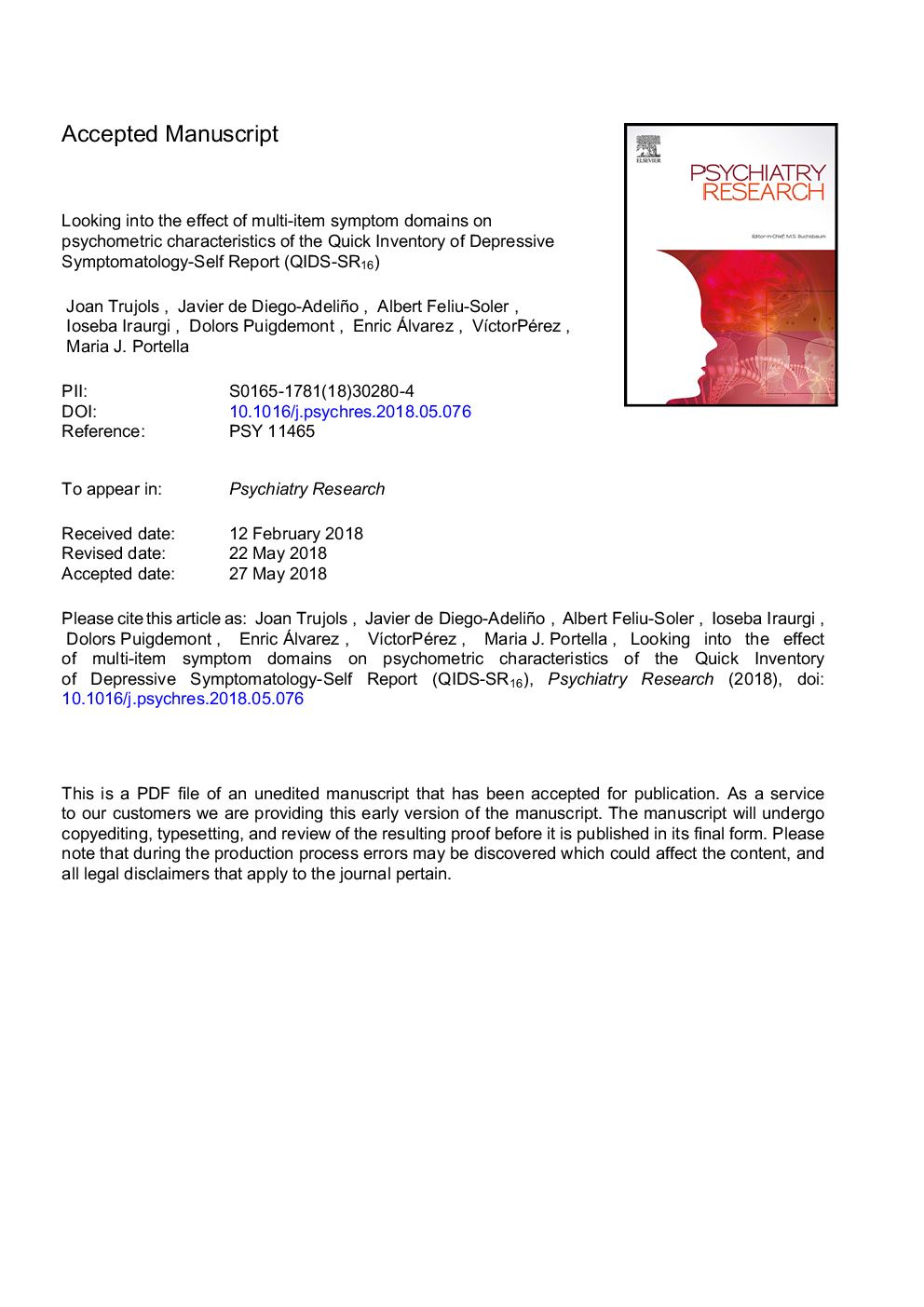| Article ID | Journal | Published Year | Pages | File Type |
|---|---|---|---|---|
| 6811194 | Psychiatry Research | 2018 | 21 Pages |
Abstract
Exploring depressive symptom severity is progressively shifting from the traditional assessment of symptom domains to detailed examination of individual symptoms. This study aimed at determining whether using an alternative scoring method (i.e., summing all scorable items instead of summing symptom domains) for the Quick Inventory of Depressive Symptomatology-Self Report (QIDS-SR16) would not compromise the measurement properties. This is a secondary analysis of data collected in a psychometric study of the Spanish version of the QIDS-SR16. One hundred and sixty-six patients were assessed by means of the QIDS-SR16 and two interviewer-rated instruments: the Hamilton Depression Rating Scale and the Clinical Global Impression-Severity scale. Factor structure, internal consistency reliability and convergent construct validity of the QIDS-SR16 scored using the alternative method were examined. Exploratory factor analysis replicated the one-factor structure of the original scoring system. Good to excellent internal consistency and convergent validity were found, which did not differ significantly from the ones of the original scoring method. Using a simplified and easier scoring method, the Spanish QIDS-SR16 retained the soundness of psychometric characteristics of both the original English version and the Spanish one scored according to the original scoring system, supporting the alternative scoring method as a reliable and valid option.
Keywords
Related Topics
Life Sciences
Neuroscience
Biological Psychiatry
Authors
Joan Trujols, Javier de Diego-Adeliño, Albert Feliu-Soler, Ioseba Iraurgi, Dolors Puigdemont, Enric Álvarez, VÃctor Pérez, Maria J. Portella,
